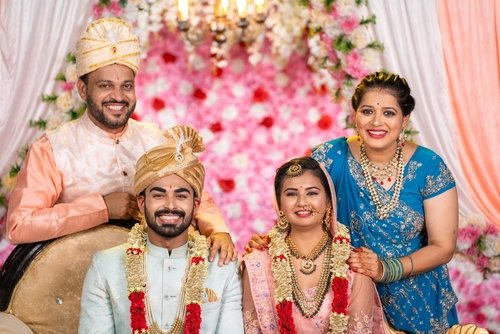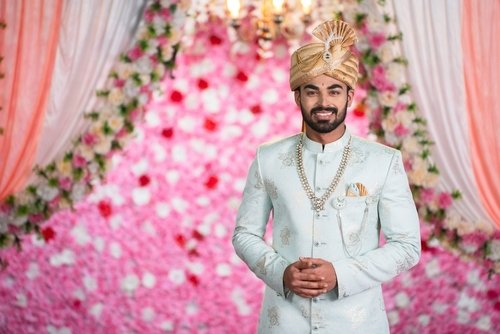Understanding Why Women Pay Dowry in India

In India, women pay dowry, a practice that is not popular today. This article will delve into the dowry world of the Indian marriage system, focusing on the personal experience of Anjali, an Indian lady who paid her husband’s dowry.
My Meeting With Anjali
My meeting with Anjali was a delightful concurrence. As the warmth of summer was about to fade in August 2024, my spouse and I decided to bask in what seemed to be the year’s final sunny spell. We drove to a serene park, just twenty minutes away, to unwind. As we lounged, an Indian couple settled beside us, and we shared friendly greetings. Soon, the man’s wife, with a charming British accent, introduced herself, “Hello! I’m Anjali. Could you please take a few pictures for us?” “Of course,” I replied with a smile.
After capturing several moments with her phone, Anjali shared that they were celebrating their eighth wedding anniversary. The joy in her eyes was palpable as she recounted, “Our wedding was a traditional Indian affair back in India.”
“Your accent sounds like someone who has lived in England all her life. Does it mean you travelled to India for the wedding?” I asked.

How Anjali’s Parents Found Her Suitor
Anjali’s parents migrated to London, England, shortly after their wedding, and Anjali and her younger brother were born and bred in London. However, when Anjali turned 10, she and her brother joined their parents to visit India every two years. After graduating from the university, her mum always asked her if she had a suitor. After a few years, the parents told her they had seen a suitor for her. Initially, she objected, explaining that she would find her suitor herself as she might not love the man they found for her. But they told her she knew him.
The suitor was the first son of his dad’s best friend. She had met him in New Delhi several times when they visited India. The first thing Anjali and the family did every time they arrived in India was to see the dad’s best friend in New Delhi. On every occasion, they set Indian cuisine on a long table where both families would eat together. Although Anjali never had anything to do with the suitor, they knew each other. Anjali also confessed that she had always admired him, her feelings running deep. So, when the parents told her who the suitor was, Anjali didn’t argue much. She only asked them to give him her number so he could call her.
Acceptance of The Marriage Proposal
Even though Anjali admired the man, she was determined to be well acquainted with him before making any decisions. Hence, they started talking on the phone, spending hours discussing, sharing their life stories, and understanding each other’s perspectives. After five months, the man made a significant visit to London to see Anjali, a visit that would shape their future. During this visit, Anjali became convinced she would want to spend the rest of her life with him, and she consented to the marriage proposal.

Anjali Discovered That Women Pay Dowry in India
After Anjali had accepted the marriage proposal, she informed her parents. They were happy and immediately held a brief meeting with her. The critical points of discussion were the wedding venue and dowry arrangements.
Anjali, who had anticipated a wedding in London, was taken aback when her father announced a traditional Indian wedding in New Delhi, India. However, the real shock came when she learned that her family was expected to pay a dowry to her fiance.
“I had read books where men paid their wives’ dowry and had never heard of a woman paying a man’s dowry,” Anjali shared. Despite her surprise and shock, her family paid the dowry, and the wedding was held in New Delhi. “It was eventually a grand wedding,” concluded Anjali.
Women Pay Dowry in India
Like Anjali, many people are unaware that women still pay dowry in India. This practice, which was also common in England but ended in the 19th century, has not been eradicated in India despite being prohibited since 1961.
What Is A Dowry?
The 1961 Dowry Prohibition Act in India defines dowry as any property or valuable security agreed to be given or given directly or indirectly at or before or after marriage as consideration for the marriage of the said parties – (a) by one party in a marriage to the other or (b) by the parents of either party to the other or by any other person to either party in the marriage. The Prohibition Act emphasises that any property or value given as a gift when no demand is made is not dowry. It’s vital to note that giving or receiving a dowry in India attracts a legal consequence of a minimum of five years imprisonment and a fine.

Why Women Still Pay Dowry In India
Although paying or receiving dowry in India attracts a severe consequence, it’s still a common practice, mainly for three reasons:
- Many women pay dowry in India because they believe that the practice of dowry payment by the bride’s family is deeply rooted in culture, and they wish to uphold this tradition in their marriages.
- Another reason women pay dowry in India is that women from families who choose not to pay dowries often face significant challenges. They may experience delayed marriage, as many men prefer to marry women from families that adhere to the dowry tradition.
- Interestingly, women pay dowry because some Indian families enjoy paying dowry. Such families see it as a way to show their wealth.
Conclusion
It’s essential to note that this practice has its criticisms. Some argue that it perpetuates gender inequity and can lead to financial strain and even abuse for the bride. Despite the criticisms, the Indian marriage system, with less than one per cent divorce rate, is one of the best in the world.
What do you have to say concerning the Indian marriage system? Have you or someone you know been affected by the dowry system? Share your experiences and thoughts.
Should women pay dowry?
Do you think the Indian marriage system is successful because women pay dowry?
Your view in the comment section will significantly contribute to the community’s understanding of this issue. Your opinions matter.






